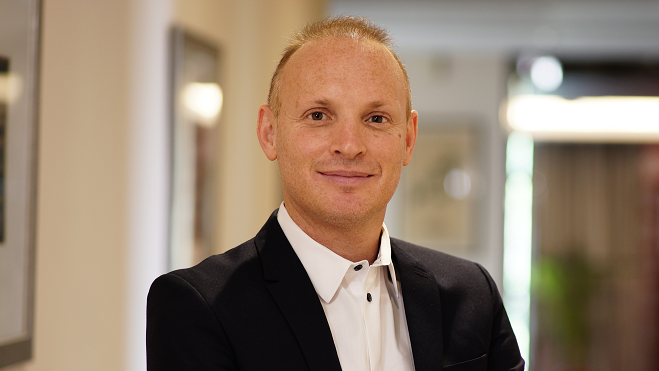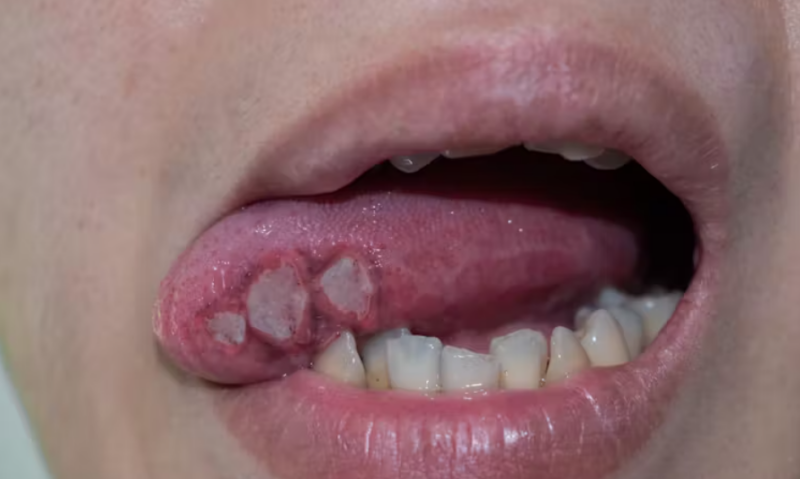
Justin Stebbing: Cases of mouth cancer have reached a record high in England and Scotland
Justin Stebbing, Visiting Professor of Cancer Medicine and Oncology at Imperial College, shared on theconversation.com
“Cases of mouth cancer have reached a record high in England and Scotland, a new report shows. Last year, there were more than 10,000 new cases.
Mouth cancer has increased by 38% in the past decade and by 133% compared with 20 years ago. Last year, more than 3,500 people in the UK lost their lives to mouth cancer.
The increase in mouth cancer cases cannot be attributed solely to there being more people, meaning that more cases occur. While the UK population has indeed grown over the past two decades, the rise in mouth cancer cases has outpaced this growth significantly. The so-called ‘age-standardised incidence rates’, which account for population changes, have also shown an upward trend meaning that this effect is very real.
Several factors are probably behind this increase in mouth cancer cases. Changing lifestyle habits, particularly those related to known risk factors, play a significant role.
Tobacco use, including smoking and chewing tobacco, remains a primary cause, with around two-thirds of cases directly linked to smoking. Excessive alcohol consumption is another major contributor, responsible for about one-third of all mouth cancers.
The combined effects of heavy drinking and smoking can increase the risk by a staggering 30 times.
Additionally, the human papillomavirus (HPV) has emerged as an increasingly important risk factor, particularly for oropharyngeal cancers, a type of mouth cancer affecting the throat. Oral HPV is thought to mainly spread through oral sex.
How to spot it
Mouth cancer can be effectively treated if caught early enough. Common symptoms include persistent mouth ulcers that don’t heal within three weeks, unexplained lumps in the mouth or neck area, white or red patches in the mouth or throat, and difficulty swallowing or persistent hoarseness.
Regular dental check-ups and self-examinations can aid in early detection. However, awareness remains a challenge. Only 20% of adults knowing the signs and symptoms to look for – although some good news from the State of Mouth Cancer UK Report 2024 was that nearly 80% of UK adults know that it is possible to get cancer in or around the mouth.
Most people have heard of cancer affecting parts of the body such as the lungs or breasts. However, cancer can also appear in the mouth, where it can occur in areas like the lips, tongue, cheeks, tonsils and throat, which are included in the report. Sometimes it’s called head and neck cancer.

While mouth cancer can affect people of any age, it predominantly strikes older adults. About 85% of new cases occur in people over 50. But recent reports have also shown an increasing number of cases at younger ages, emphasising that the disease can occur at any stage of life. I’ve certainly looked after very young patients with this.
Treatment options for mouth cancer have evolved over the years, typically involving a combination of surgery, radiotherapy and chemotherapy.
The specific treatment plan depends on factors such as the cancer’s stage, location and the patient’s overall health. Surgery often remains the primary treatment for early-stage mouth cancer, often followed by radiotherapy to reduce the risk of recurrence.
For more advanced cases, a combination of treatments may be necessary, including chemotherapy and targeted therapies. Sometimes a combination of chemotherapy and radiotherapy means that people with mouth cancers can avoid surgery altogether.
Other recent developments include immunotherapy drugs, which help increase survival rates too. However, the prognosis for mouth cancer varies depending on the stage at diagnosis and the effectiveness of treatment. There’s no doubt that early detection significantly improves survival rates.
Emerging treatments offer hope for improved outcomes in mouth cancer cases. Targeted therapies are also showing promise in clinical trials and are increasingly being incorporated into treatment regimens. Often, these newer treatments aim to enhance the body’s immune response against cancer cells or target specific molecular pathways involved in cancer growth.
Overall, improving education, increasing access to NHS dentistry and tackling late diagnosis are some of the key challenges in confronting mouth cancer. The report also calls for a government-funded mouth cancer campaign.
As research continues, the focus remains on early detection, prevention and raising public awareness about mouth cancer, which can help decrease heavy drinking and smoking – both major risk factors.
Healthcare professionals, including dentists and GPs, play a crucial role in identifying potential cases and educating patients about risk factors and symptoms. With continued efforts in research, prevention and treatment, there is hope for improving outcomes and reducing the impact of this increasingly prevalent form of cancer.”
More posts featuring Justin Stebbing.
Justin Stebbing is a visiting Professor of Cancer Medicine and Oncology at Imperial College, London and a Professor of Biomedical Sciences at Anglia Ruskin University (ARU), Cambridge. He was appointed the first NIHR oncology professor in 2011. He is a scientific advisor at Sable Bio. Prof. Stebbing has published over 700 peer-reviewed papers in leading academic journals. He is a member of the American Society for Clinical Investigation, a fellow of the Royal College of Physicians, and the Royal College of Pathologists, and sits on many advisory boards. He is on the Editorial Board of OncoDaily.
-
Challenging the Status Quo in Colorectal Cancer 2024
December 6-8, 2024
-
ESMO 2024 Congress
September 13-17, 2024
-
ASCO Annual Meeting
May 30 - June 4, 2024
-
Yvonne Award 2024
May 31, 2024
-
OncoThon 2024, Online
Feb. 15, 2024
-
Global Summit on War & Cancer 2023, Online
Dec. 14-16, 2023
